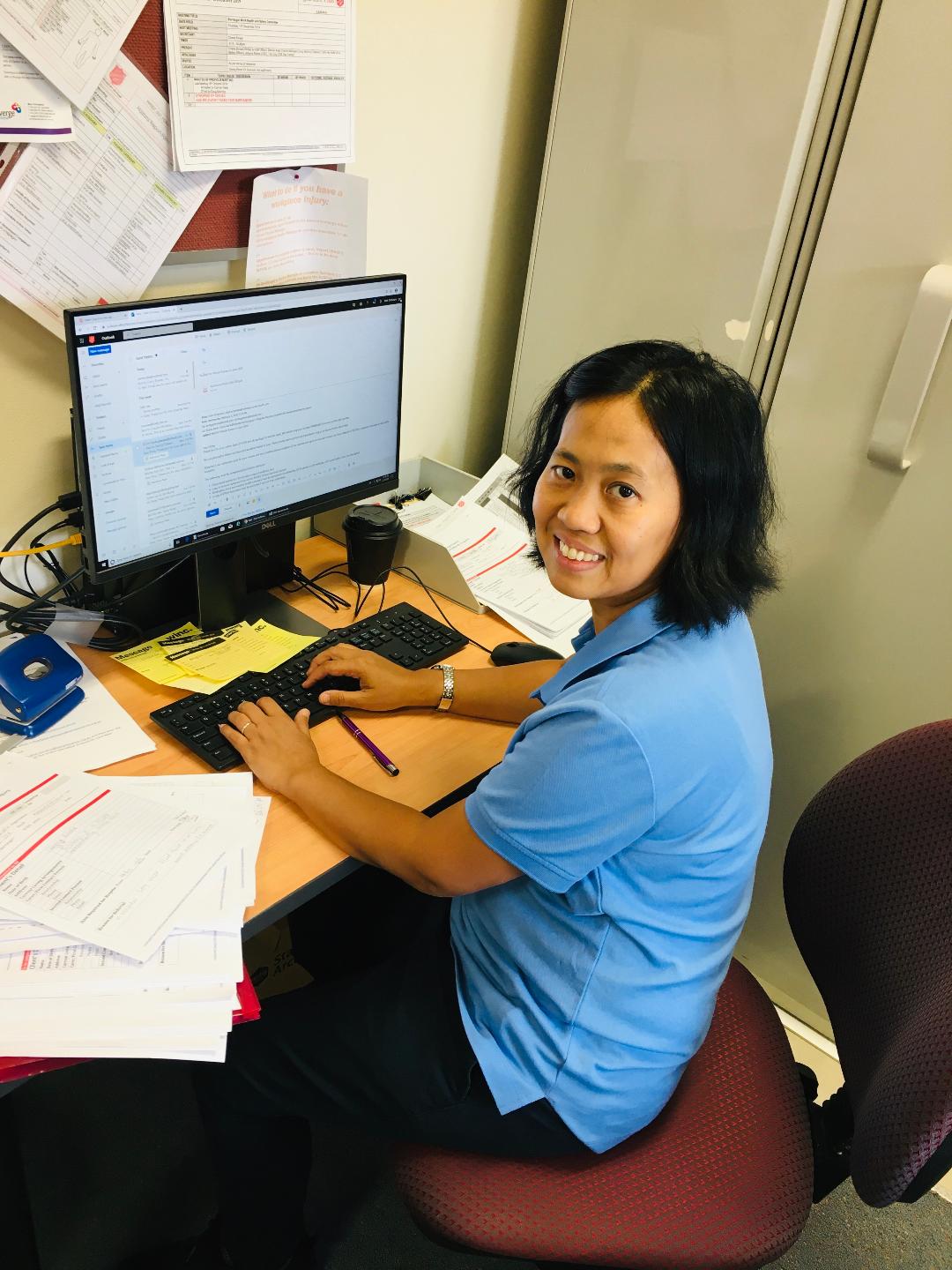Nurse Spotlight: Diah Octaviana

In celebration of the World Health Organization's Year of the Nurse and the Midwife 2020, we shine the spotlight on The Salvation Army Aged Care's nurses.
Here's our feature on Diah Octaviana - our Registered Nurse at Burrangiri Respite Centre.
How long have you worked with The Salvation Army Aged Care?
I started my employment in September 2013 as a Care Employee Service (CSE) and have performed in my current role as a Registered Nurse since March 2018.
How long have you worked with The Salvation Army Aged Care and in aged care?
Almost 7 years.
Why did you pursue a career in nursing?
Previously, in Indonesia, I worked in the hospitality industry for 14 years where I learnt a great deal about customer satisfaction. Upon arrival in Australia in 2013, I began my studies into aged care which was a huge eye-opener to me and led me into a career in nursing. I followed this path because I’d always been interested in medical care and wanted to be a doctor.
Fortunately, by working in the aged care industry, this gave me the opportunity to learn about dementia and mental health and how we deliver care for our clients.
For Indonesian families, it is common for the family to look after their loved ones. Unfortunately, this means they’re often not very equipped to deal with dementia. In addition, there’s a stigma around mental health and it’s believed that this is related to karma or bad luck - so some people can be isolated or may not receive proper care. This occurs not only because of lack of education but also due to lack of government funding.
For me, studying and working in aged care has encouraged me to further develop my nursing skills and learn how to better provide person-centred care. For this reason, I believe don’t have to be a doctor to be able to look after people. I do hope that one day I may be able to contribute my knowledge and skills to my family and friends in Indonesia.
What is the most rewarding part of your role as a nurse?
Firstly, delivering education to clients and family members from lack of information to find better resources for services they are entitled to receive.
Secondly, providing better quality of life and seeing the smile on not only a client’s face but also their family.
Thirdly, contributing to problem solving when faced with a challenge while providing both clinical-care.
And finally, seeing clients meet their goals in improving their quality of life as well as receiving acknowledgment from a client or family member for the care we provide!
What are some common misconceptions about your role as a nurse?
Nurses have all the answers!
What makes the service we provide at The Salvation Army Aged Care different from others?
Our centre provides respite care - a service we provide a carer to give them a break from looking after a loved one.
For respite care, you do not require an ACAT assessment to obtain this service – this means we are able to provide care and respond to the client’s needs but also their family member’s needs which ultimately gives them a chance to enhance their quality of life.
What advice would you give others who work in similar roles?
You need passion and compassion for what you do - without judgement of people in your care, their family and carers.
Also, never assume that you are doing is a better job than others but always acknowledge and respect people’s choices!


